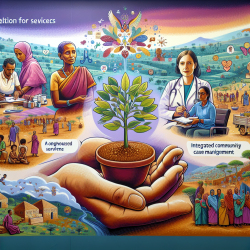Telemedicine has become an integral part of modern healthcare, especially in the wake of the COVID-19 pandemic. The research article titled Health care professionals' knowledge and attitudes toward telemedicine offers valuable insights into how healthcare professionals perceive and understand telemedicine. This blog aims to help practitioners improve their skills by implementing the outcomes of this research or by encouraging further exploration of the topic.
Understanding the Study
The study was conducted at King Fahad Medical City (KFMC) in Riyadh, Saudi Arabia, and involved 370 healthcare professionals, including physicians, nurses, and allied health professionals. The data was collected using a structured self-administered questionnaire, focusing on three main areas:
- Demographic data
- Knowledge of telemedicine
- Attitudes toward telemedicine
Key Findings
The study revealed several important findings:
- 63.7% of participants had limited knowledge of telemedicine.
- 11% had a good understanding, and 25.3% had extensive knowledge.
- The overall attitude toward telemedicine was positive, with a mean score of 3.26 out of 5.
- Physicians had the highest attitude scores (3.69), followed by allied health professionals (3.31) and nurses (3.07).
Implications for Practitioners
The findings indicate a gap in knowledge but a generally positive attitude toward telemedicine among healthcare professionals. To bridge this gap and enhance the implementation of telemedicine, the following steps are recommended:
1. Enhance Educational Programs
Specialized educational programs should be developed to improve healthcare professionals' knowledge of telemedicine. These programs can include:
- Technical training on telemedicine equipment and software
- Clinical training on virtual consultations and remote monitoring
- Legal and regulatory training on data privacy and patient consent
- Communication training to improve virtual patient interactions
2. Promote Positive Attitudes
Given the positive attitudes already present, it's crucial to maintain and enhance these attitudes through:
- Public awareness campaigns about the benefits of telemedicine
- Incentives for healthcare professionals to adopt telemedicine
- Support from healthcare institutions and policymakers
3. Conduct Further Research
While this study provides valuable insights, further research is needed to explore:
- The impact of telemedicine on patient outcomes
- Long-term satisfaction among healthcare professionals
- Barriers to telemedicine adoption in different regions
Conclusion
Telemedicine has the potential to revolutionize healthcare, but its success depends on the knowledge and attitudes of healthcare professionals. By enhancing educational programs, promoting positive attitudes, and conducting further research, we can ensure the successful implementation and sustainability of telemedicine. For practitioners, staying informed and proactive in adopting telemedicine will lead to better healthcare outcomes and improved patient satisfaction.
To read the original research paper, please follow this link: Health care professionals' knowledge and attitudes toward telemedicine.










